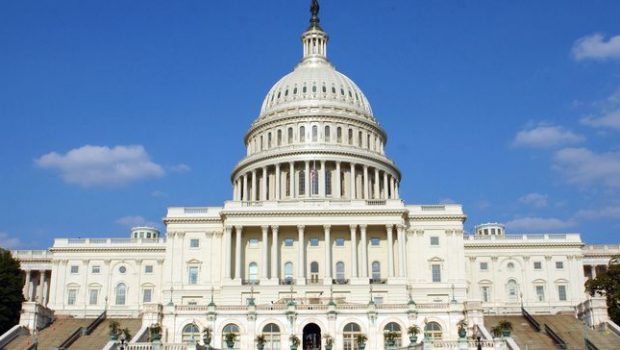House user-fees bill details clinical trial diversity, cybersecurity requirements
Legislation that would determine the Food and Drug Administration’s priorities for the next five years and how much the agency can collect in fees from medical device companies is one step closer to being completed.
The House Subcommittee on Health proposed a bill on May 4 to renew the FDA’s user-fee agreements for the next five years. The legislation sets goals and funding amounts for the Medical Device User Fee Amendments (MDUFA), as well as similar agreements for prescription drugs, generic drugs and biosimilars, which must be reauthorized by Congress before Sept. 30.
The medical device portion of the bill largely keeps the same fee structure as the discussion draft, which was created in late March. However, it gives the FDA the authority to require device makers to submit plans for clinical trial diversity and plans for addressing cybersecurity vulnerabilities as part of premarket submissions.
The bill would let the FDA bring in $1.78 billion in fee revenue from 2023 to 2027 to fund review of medical devices. That amount could increase to $1.9 billion if the agency meets certain performance goals.
Although, Sen. Richard Burr, R-N.C., raised concerns about the increasing of fee costs from previous years during an April 4 meeting, the fee structure of the House bill remains unchanged from the discussion draft.
Here’s the fee breakdown by year:
Proposed fees under MDUFA V
| 2023 | 2024 | 2025 | 2026 | 2027 | |
|---|---|---|---|---|---|
| Premarket application fees | $425,000 | $435,000 | $445,000 | $455,000 | $470,000 |
| Establishment registration fees | $6,250 | $6,875 | $7,100 | $7,575 | $8,465 |
The FDA would also have to meet certain hiring requirements to be able to raise the additional funding through fees. For the next three years, its goals are:
- 2023: 144 hires (123 minimum required for funding)
- 2024: 42 hires (38 minimum required for funding)
- 2025: 24 hires (22 minimum required for funding). This assumes the FDA does not increase its establishment registration fees starting in 2025, otherwise its hiring goal increases to 83 people (75 minimum)
Trial diversity and cybersecurity
Where the bill differs from the discussion draft is that it expands the FDA’s authority around clinical trial diversity and cybersecurity requirements.
For instance, the FDA would be able to require a device sponsor to submit a diversity action plan as part of premarket reporting, according to a section-by-section breakdown of the bill. This would include the sponsor’s goals for enrollment in the clinical trial, their rationale and how they intend to meet those goals. The agency would also be required to publish a report on its diversity action plans within two years of MDUFA’s enactment.
The FDA also would be required to issue draft guidance on decentralized clinical trials within a year of the legislation’s passage, which would consider enrollment and retention of a meaningful diverse clinical population.
In addition, the legislation would give the FDA authority to require device manufacturers to include certain cybersecurity information in their premarket submissions, aligning with some of the recommendations that the agency shared in a recent draft guidance. It would apply to any devices that include software or connect to the Internet.
Device makers would be required to include information on processes to ensure device security, plans to identify and address vulnerabilities and a “software bill of materials,” which is a list of software components included in a medical device.
If a device’s cybersecurity information is found lacking, the FDA would have the authority to deny 510(k) clearance, though it also could exempt some types of devices from the requirements. The bill would also make failure to comply a prohibited act.
No mention of LDTs
While these topics were codified in the bill, other items discussed during the hearings didn’t make it into the text. Laboratory-developed tests (LDTs) were not mentioned in the House bill even though they were discussed during hearings over the last month.
Earlier this year, the Department of Health and Human Services restored the FDA’s ability to require premarket review for LDTs.
During a public hearing in April on the user-fee agreements, Tom Sparkman, senior vice president of public affairs and policy for the American Clinical Laboratory Association, said LDTs should not be regulated as medical devices and added that “if thousands of clinical laboratories were suddenly required to submit thousands upon thousands of LDT applications under the device framework, the workload would vastly exceed the agency capacity plan for and the draft MDUFA five commitment letter.”
Cowen Research analysts noted the absence in a May 9 report, writing that they “continue to believe LDT reform will likely be included in the final bill based on strong support from leaders of the Senate HELP Committee, which is crafting its own user fee package.”
Correction: This article has been updated to correct the definition of a software bill of materials, which provides a list of software components in a device. A previous version defined it as a list of software and hardware in a device.








Gloss